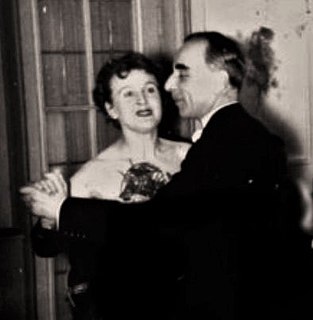Top 72 Quotes & Sayings by Gretl Braun
Explore popular quotes and sayings by Gretl Braun.
Last updated on December 18, 2024.
After [Adolf] Hitler took power, Hoffmann moved to a grander place on the Ebersbergerstrasse. I never saw the first house, I was never there. It was at the Schnorrstrasse that Eva [Braun] and he first really got to know each other. Some of this was before Geli Raubal's death, much of it was after that event.
I'm quite sure it happened in Berlin too when Eva [Braun] stayed there later on. I wouldn't know about that because I was scarcely ever there myself. I don't want to suggest she was crying all the time, but then they had their arguments, she was very downcast until she had cried it through. It happened on occasion.
When [Adolf] Hitler was in Munich, their place [with Eva Braun] to meet was always his apartment. Before that, it was at Hoffmann's place. They had their routine there, Hitler had his security there, it was a place he was used to. He never got used to the apartment he got us on the Widenmayerstraße .
She [Eva Braun] was always complaining later on, "I know nothing that's going on." They [with Adolf Hitler] talked about other things: dogs, movies, music, Munich gossip, who was going with who, who was cheating on their spouses, who was drinking too much or trying to quit. All sorts of local things like that.
At the Berghof, it was almost like a family atmosphere there. We all ate meals together, watched films together before the war, listened to records, all those things. The same faces were always around on the mountain. If [Adolf] Hitler and Eva [Braun] had an argument there, it would have been obvious to me, because I knew Eva.
[Eva Braun] went to the Nurnberg party rallies starting in 1935. She was there twice and stayed at the Hotel Deutscher Hof, the hotel [Adolf] Hitler had always stayed at while there. It was endless subterfuge in order to see him and then only for a few hours, then she had to sneak back to the banishment of her own room.
I wish I had [letters], can you imagine their value, and I don't mean merely financially. I am sure they were accidentally destroyed or that Schaub found them and destroyed them. [Adolf] Hitler didn't want those letters read by anyone but Eva [Braun] and had made that point clear in the course of the years.
















